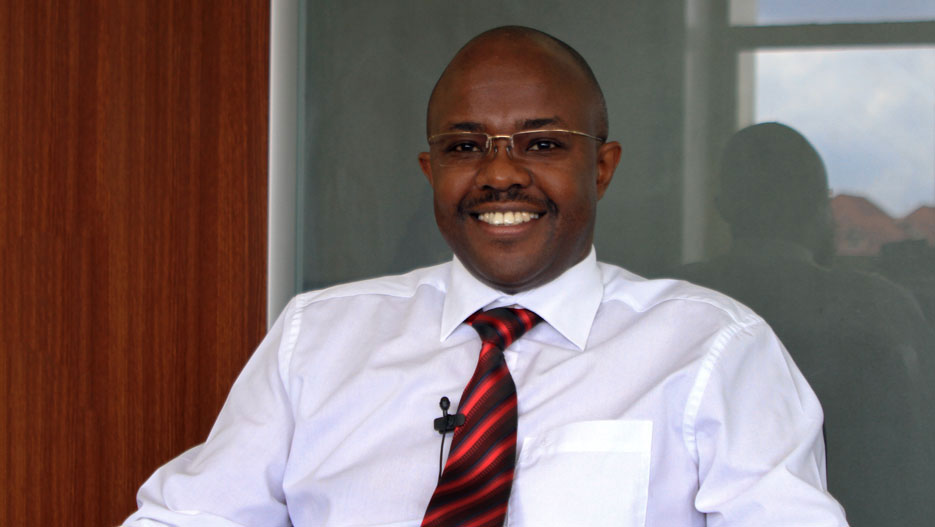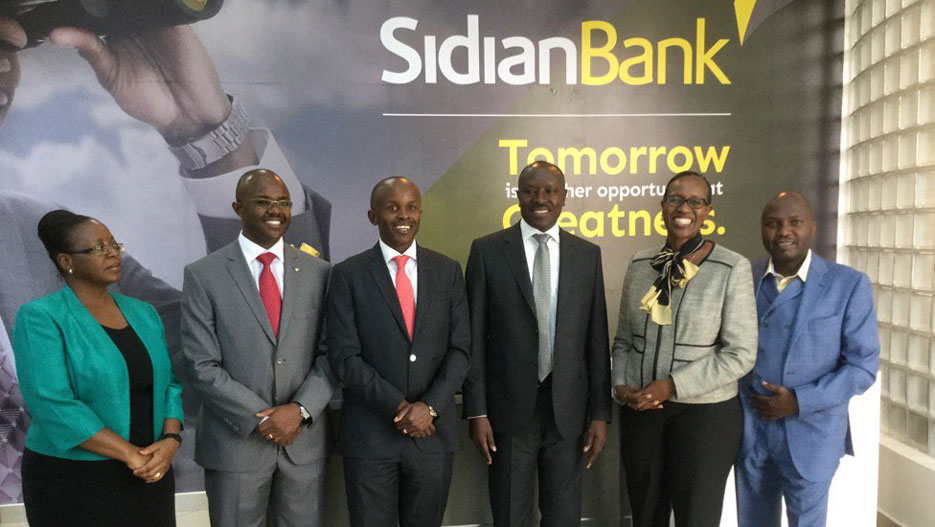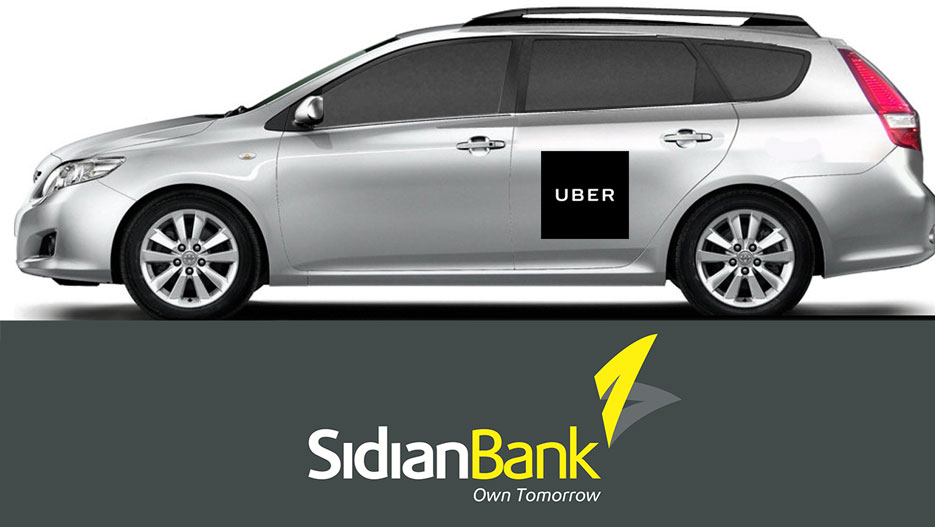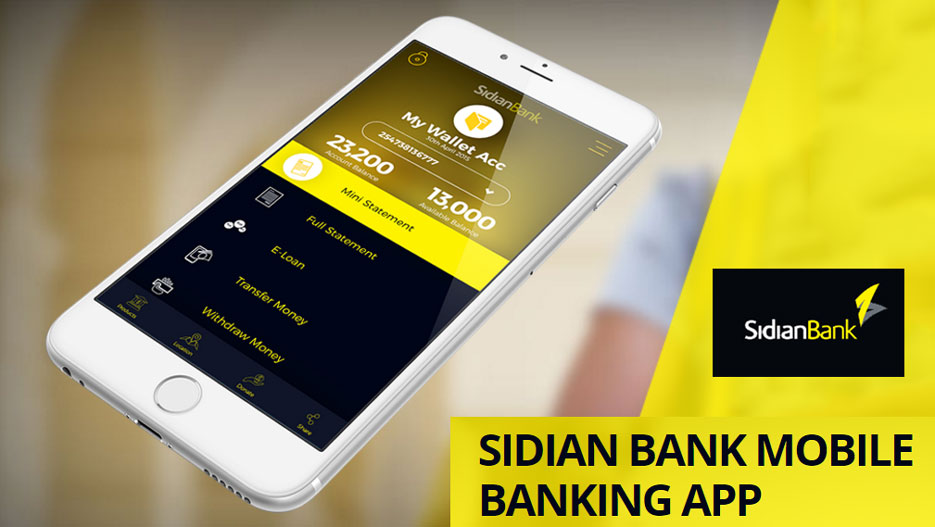Sidian Bank: An Overview of the Banking Sector in Kenya by Titus Karanja
Titus Karanja gives an overview of the banking sector in Kenya and presents Sidian Bank, a bank founded in 1984, formerly known as K-Rep Bank. He also talks about the challenges of the banking sector in Kenya and shares his vision for the future.
Interview with Titus Karanja, CEO of Sidian Bank

Could you start by giving us an overview of the banking sector in Kenya?
The banking sector in Kenya has 42 banks and is a very competitive sector. It is very competitive in terms of market segmentation with the heaviest competition being seen in the SME enterprise banking which is a fairly vibrant part of the Kenyan economy and a lot of banks have value propositions targeting that particular segment. We also have a banking sector that is highly integrated with telecommunications money transfers so it is very competitive on what kind of value propositions we are able to offer for peer to peer money transfers and business to customer and customer to business payments; mostly riding off the MPESA innovations which have now integrated back into the banking system. The Kenyan banking industry is perhaps unique compared to most African economies in terms of the payment space developing much faster than the credit space. That is the kind of innovation that we are seeing now. The Kenyan banking sector is also in an interesting situation now because there have been major dynamics around the issue of pricing on credit with interest rates almost being regulated so we shall see how that will go. We also have the trend that now we have a lot of financial technology companies who are coming and doing things that the banks traditionally used to consider to be their traditional business and so it is an industry that is competitive in and of itself as an industry, but is also facing a lot of competition from fintechs, the financial technology companies.
Sidian Bank, formerly known as K-Rep Bank, is a bank owned by Centum Group. Could you tell us about the history of the bank, as well as your main areas of actuation?
We consider ourselves a problem solving bank. We offer a solution for you as opposed to selling you a product that is off the shelf without any customisation whatsoever.
Sidian Bank started in 1984, 32 years ago and it started as a small project to assist local businesses with management capacity and it was called the Kenyan Rural Enterprise Assistance Program (K-Rep). It then moved on to become a lender because it was identified that as much as small businesses had management challenges, there was also a challenge in terms of access to finance back then. The business then evolved and got a banking licence in 1999 and continued to serve the same customers who were very small, mostly start-up enterprises. Over time in that long history, those businesses grew and so the bank became partially an SME bank and partially a microfinance bank. Today we are pursuing a new strategy to broaden the scope of the bank to include consumer banking. We are broadening it to be a lot deeper in our value proposition to enterprises and SMEs but we are still going to maintain our core heritage sector in microfinance, funding small start-up businesses.

Recently, Sidian Bank has set aside Sh2 billion to lend medical service providers. Could you tell us more about that?
Access to medical services is one of the biggest needs that we have in our country today. We have the vast share of our medical services still being done by government. That is not sufficient to reach the very vulnerable in the society; it is not sufficient to go deep into the countryside. Sidian Bank saw an opportunity to assist entrepreneurs in medical services, whether they are pharmacists or people running diagnostic equipment, laboratories, or hospitals or practicing doctors or dentists and the like… We entered into a partnership with the medical credit fund which runs out of Holland and we are doing a partnership which enables the bank to fund entrepreneurs in medical services in order to improve access to medical services particularly targeting vulnerable communities.
Can you tell us more about the competition? Why should someone choose to bank with Sidian Bank and not another bank?
The reason why they should choose Sidian Bank and not another bank is that Sidian Bank is the one bank that is extremely clear in that for us to do business with enterprises in Kenya we must offer real value. We consider ourselves a problem solving bank. As an enterprise owner you want to walk into our bank and for us to understand what you need. We offer a solution for you as opposed to selling you a product that is off the shelf without any customisation whatsoever. The promise that Sidian makes is that if your business is for example in media entertainment, medical services, transport or whatever, we are going to sit down and really try to understand exactly what it is that you need and offer you a solution that is tailor made for your size of business and for your sector in a way that ensures that we are a valuable partner for you in the future. This is the primary reason why you should stay with Sidian Bank and not go with any other bank.

Do you do anything in terms of CSR?
Yes indeed. Sidian Bank is focused on two major CSR projects. We are a partner for the Nairobi Spinal Injuries Hospital which is just down the road from here and we have been in a long term program of support for that hospital. Last year we completed a borehole project for them and put up a pump house for them which enables them to be self-reliant as far as water supply is concerned. The hospital takes care of people who have been in accidents and who have spinal injuries and require specialised care. Because it is government funded it has always suffered from low resources and so Sidian Bank came in as a partner. Our staff raise 50% of the budget for an identified project every year and the bank then matches that fund. We then participate in whatever they have identified as a need for that year. Last year their need was water and so we did a project to ensure that they got a borehole and put up a pump house so that they could be self-reliant for water services.
The next CSR activity that we do is that we are engaged in creating new entrepreneurs. We do this by looking for a profitable sector and looking for entrepreneurs that are promising and we are willing to take on the risk of funding fresh entrepreneurs who are just starting off. We are doing that for example with Uber where we are funding people who have been employed as drivers up until now and who have good behavioural statistics and we use that behavioural data to fund them. So they don’t require a credit history at all as we do it as part of our initiative to credit brand new entrepreneurs in the country by giving people their first chance to be self-employed. We are going to be launching another new scheme that will allow people to get into the spare parts business and consumables business for small value spare parts with one of the leading motor vehicle distributors in the country and motor vehicle assemblers actually. That should be launching in about a month or so. Again, we are going to be creating fresh entrepreneurs, mostly among the youth in Kenya, all across the country.

What are the main challenges to be faced by the financial and banking sector in Kenya? And what is being done to overcome these challenges?
I think the very biggest challenge for all Kenyan bankers today is the issue of the interest rates and the fact that the public has been very clear that we have had a fairly high interest rate which makes it difficult for enterprise owners to access loans and pay them to completion. The industry is working on dealing with this challenge. For example, we are soon going to be announcing a fund that is going to be giving affordable finance to specific sectors of the economy that are underfunded. That is an initiative by the entire banking industry where everyone has agreed to commit a certain percentage of their total assets to funding it. It is a big issue in that we do need to create entrepreneurs in the country; we do need to deepen the level of enterprise in this country. Kenyan access to finance has made great progress but the cost of that finance has not made that much progress and so as an industry we are looking at how to address this. The other challenge that we face is that the cost of collecting on non-performing loans, on delinquent loans, is extremely high. This is a problem that ties into quite a number of factors including the judicial process and options that are available to a business once it gets into trouble. Fortunately the country is making significant strides in this; we have a new insolvency law which is just getting implemented now. There are a lot of judicial reforms that are being worked on also. On the government side they are working on making the land register a lot more efficient and we are really waiting expectantly to see the benefits of this. These are the key challenges that face the Kenyan banks today. The other challenge which is still important but not as critical as those I have just mentioned is that we have a rising level of delinquent debt across the industry. This has been from mid last year when we started detecting a trend of increasing delinquency on loans across various sectors of the economy and every time you have a general rise in delinquency across a banking industry the tricky thing is what to do in order to ensure that you maintain stability and a good level of payment without stifling entrepreneurial growth. This is a challenge that we are grappling with in this industry and a number of efforts are being made to ensure that because government is the single largest spender in this economy, that government pays their entrepreneurs quickly enough. We recently, just last week, had a cabinet decision to pay the youth and women enterprises with preferential speed so that they do not default on their bank loans. We are also working as an industry on collection mechanisms using credit reference bureaus and engaging a lot more with our customers in order to ensure that we address the underlying reasons for why we have had a rising set of delinquencies in the country over the last 11 months or so.
For Sidian Bank the specific challenge that we have is the growth imperative. We are a small bank today but we have ambitions to be a tier 2 bank in Kenya by 2019. In order to grow to that level by 2019, it requires us to invest significantly in our infrastructure, in efficiency and also in transforming our staff. As a bank what we are doing is that we have a fairly large technology budget for this year and into next year where we intend to deploy a lot of resources into making us perhaps the most technology savvy bank in this economy in order to deliver to entrepreneurs at the speed and efficiency that they want. At the same time we also have a very heavy training budget in order to convert our bankers from the traditional banking practices to the more technology orientated banking service delivery. Our advantage is that in being a fairly small player, we are a lot more nimble and so we can actually uproot our entire infrastructure today and put in brand new ways of doing things and it is not as painful a change as it would be if we were three or four times our size today. Right now we are going through that exciting transformation where the technology is changing and our staff are being trained so that the two can meet in a convergence that will really make us a highly competitive and efficient player by next year.

What is your vision for the future of the sector in the next two or three years?
First of all let´s talk about some of the things that are critical in Kenya. One of the things that is critical in Kenya is that like many countries in Africa we have a very large population of youth who are coming into the working market, into the productive sector of the economy. The difference with the Kenyan youth is that their uptake of technology is extremely high. They are very willing to attempt to use and deploy and innovate on technology. The level of acceptability of any technology or innovation from all over the world is high; people are very quick to pick up on it. Nairobi is also becoming an innovation hub of its own. I think that will be the biggest thing that will drive banking in the next few years. Most banks in Kenya must imperatively change themselves to be more relevant to the techno savvy youth of tomorrow because if they are running a business, most likely it will be an online business, and if they are running a payment service, there are payment innovation services coming from every direction you can look at. The banks have to be relevant in that new economy. The Kenyan entrepreneur is also becoming a lot more integrated into the rest of the world. People are integrated at a logistical level with suppliers in Europe, China and the United States and so Kenyan banks must play in that space in order to benefit from that new economy.
What would be your message to the international business community and investors considering Kenya as a destination?
Kenya is a wonderful story in that Kenya has a very warm population that is very welcoming. It has always been a friendly environment for anyone to come and do business or come on holiday. The people are very welcoming to just about anyone from anywhere in the world. It also helps that the population of Kenya is fairly well educated and very open to new ideas. I would encourage any investors looking at investing in Kenya or in the region, to consider Kenya to be a platform from where they can springboard into the rest of Africa. You will find that we have excellent weather and friendly people who are well educated and willing to work hard. You can’t beat that combination.